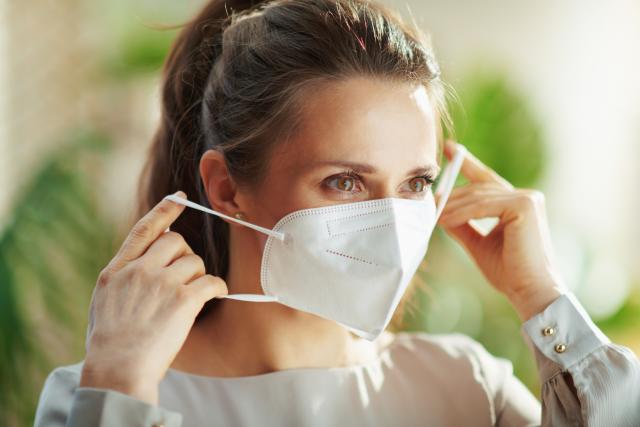
Charlotte Varcoe
MASKS have been reintroduced at medical services across the Limestone Coast Local Health Network following a state-wide Covid-19 wave.
Recent figures have reported a 50 per cent jump in cases within a week.
SA Health stated on Monday there were 2493 weekly cases reported compared to 1691 the week before.
Hospitalisations have remained “steady” with an average of 30 people per week admitted.
During the current wave, it has been recommended susceptible groups such as older people and those with chronic illness or who are immunocompromised should enhance their immunity and reduce their risk of severe illness by having their Covid-19 vaccine booster.
Limestone Coast Local Health Network chairperson Grant King said the network had reintroduced mask requirements in response to the outbreak while also encouraging members of the public to remain cautious.
“We recognise there has been an increase in Covid-19 cases so we are being more focused on making sure people in clinical areas are wearing masks,” Mr King said.
“This is as much about a message to people around being careful around this time when there is a spoke and we need to go back to some of the measures we were focused on when Covid-19 was at its peak.
“This includes wearing masks, keeping safe distances and hands clean as an interim measure with the increased number of Covid-19 about.”
Mr King said masks were now required in the medical wards and clinical settings.
“What we are encouraging is to accept the fact there are cases around,” he said.
“If someone is coming to the hospital or aged care facility, they should put their mask on and it will take care of everybody.”
Mr King said although people entering the hospitals were not currently required to wear a mask, they will be when in the wards and clinical settings.
He said at the moment it was appropriate that everyone attending medical settings should wear masks and keep safe distances from each other.
“We know there is an increase of Covid-19 numbers in the region,” Mr King said.
“There are increased cases across the state and we need to understand and recognise that and go back to basics in terms of being as socially safe as we can, wear masks where it is appropriate and be cautious.
“It is fair to say that for several months now the community has felt a bit of an easing on the risk of Covid-19 and that has been true but for some reason there are a number of cases appearing across the state and we quickly need to go back to where we were in terms of being conscious of being cautious.”
He also encouraged the community to take into account safety measures which many were facing during the peak of the pandemic.
“We have an annual flu season which we have had for many years and whether we have an annual Covid-19 season, I hope not, but it is evident there are cases and we will need to go back to those basics.”
Boandik Lodge chief executive officer Glenn Rappensberg said the rise in cases across the country had prompted a recommendation from health authorities to return to previous public health messaging in relation to hand hygiene, social distancing and staying home if unwell.
This serves as a reminder that our collective efforts to protect ourselves and those around us must remain strong,” Mr Rappensburg said.
“Whilst Covid-19 is no longer a communicable disease incident of national significance it still poses a significant health threat to vulnerable Australians, including older people.
“Australia appears to be on the cusp of an eighth Covid-19 wave, with an increase in cases across the country and older people and those with weaker immune systems are expected to remain at greatest risk of developing severe Covid-19 during this current wave.”
He said recent data showed a “concerning level” of the virus’s activity within South Australia and following a “period of slow increases” from Jul, recent weeks had “witnessed rises” to levels not observed since May.
“This serves as a reminder that our collective efforts to protect ourselves and those around us must remain strong,” Mr Rappensburg said.
“Unfortunately, the holiday months are prime time for respiratory viruses like Covid-19 and the flu, and can have serious consequences in small children, pregnant people, and older or otherwise vulnerable individuals.
“We urge people to take routine steps to protect themselves and others in the lead-up to the festive season.”
Mr Rappensburg also said people attending large celebrations or gatherings should also screen themselves for symptoms and avoid the events if symptomatic.
“Testing is a great tool in our Covid-19 safety toolbox, regardless of vaccination status,” he said.
“Whether you’re taking a Polymerase chain reaction (PCR) or a home antigen test, the key is to test as close to your Christmas gatherings as possible if there are people at much higher risk for severe disease attending.”
Symptoms of Covid-19 include a runny nose, sore throat, cough, fever or chills, shortness of breath or difficulty breathing, fatigue, headache, changes in taste or smell and muscle and body aches.







